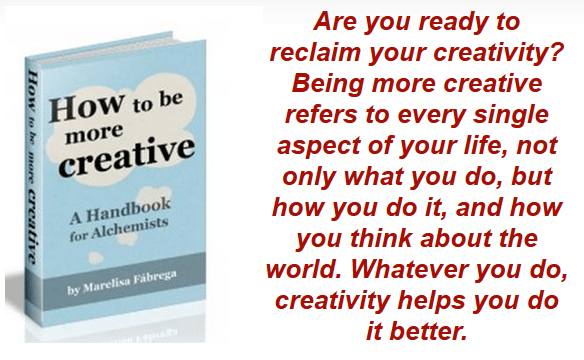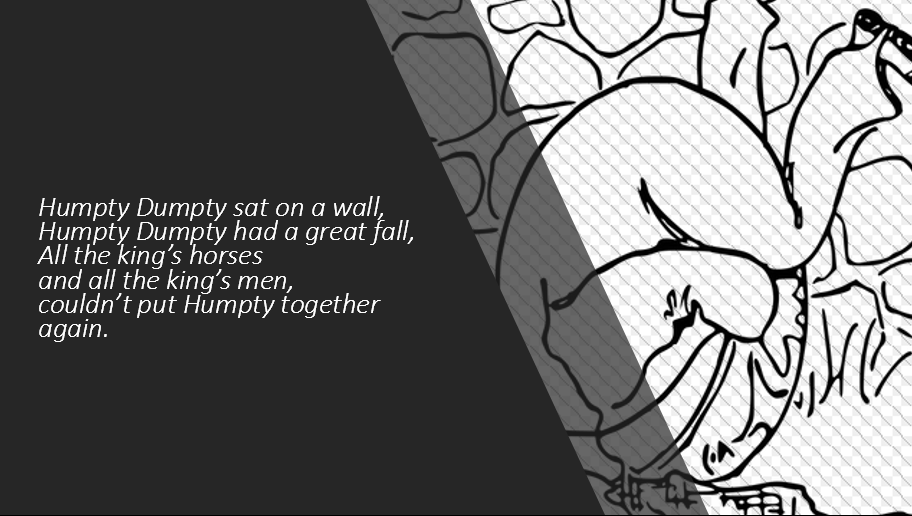
We all have regrets—things we wish we’d done, or not done.
Regret is the disappointment or sorrow that we feel when we ruminate over the belief that our life today would be better or happier if we had done something differently in the past. We can feel regret over many different things, including the following:

- Education opportunities that we failed to take advantage of.
- Financial decisions we’ve made.
- Risks we failed to take.
- People we’ve hurt.
- Spending too much time at the office.
- Not going after what we really wanted because of the opinion of others.
- Making the wrong friends.
- Trying too hard to please others.
- Not making happiness a priority, or failing to understand what truly makes us happy.
- The time wasted worrying about things that never happened.
The list goes on and on. When regret turns into fruitless rumination it can have a negative effect on both the mind and the body. Obsessing over regrets can lead to depression and stress-related diseases, it can lower your self-esteem, and it can prevent you from engaging with life in a positive and productive way.
The good news is that there are ways to deal with regret so that it stops having a negative effect on your life. Below you’ll find 10 ways to live a life of no regrets.
1. Learn From Your Regrets.
A while back I wrote about worry, and how it’s often a sign that there’s something that needs your attention. In much the same way, regret is a sign. It can be a sign of any of the following:
- There’s something wrong with your decision-making process. If making a wrong decision led you to a situation you now regret, you need to analyze your decision-making process, pin-point what went wrong, and then correct the process so that you don’t make a similar mistake again in the future.
- You’re not trying hard enough.
- You’re on the wrong path. Maybe you studied accounting, when what you really wanted was to go to art school. If you constantly find yourself regretting that you didn’t go to art school, this is a sign that you’re on the wrong path and you need to self-correct.
- You need to forgive someone, or you need to forgive yourself.
- You need to apologize to someone and, if possible, make amends.
- You need to do some work on yourself. Maybe you need more confidence, or humility. Or perhaps you need to learn patience. It could be that you’re undisciplined. Perhaps you need more courage.
Think about the event or situation that you regret, and what caused it. Then, ask yourself what you did, or failed to do, that led to the event or situation. Lastly, ask yourself what needs to be done to remedy the situation, lessen its impact, or make sure that it doesn’t happen again. Live a life of no regrets bylearning from your regrets.
2. Accept That Some Things Are Out of Your Control.
The point above addresses the aspects of situations that you regret which were under your control. However, not everything is within your control.
When I was studying at Georgetown I took a class on Greek mythology. The professor showed us how, at first, the Greeks believed that everything that took place was decided by the gods. That is, people had almost no control over what happened to them. Some people were simply blessed by the gods, and some weren’t.
Gradually, the Greeks came to realize that a lot of what happened to them in life wasn’t preordained. Instead, it was up to them to decide what they wanted, and then make it happen. The fate of the heroes they wrote about became less dependent on the will of the gods and the vicissitudes of fortune, and more dependent on their own free will.
Nonetheless, the gods continued to lurk behind the shadows, helping this or that person out on some occasions, and knocking people down on others. The reality is that this is what life is like. A lot of things are within your control, but a lot of things aren’t.
When things don’t go as you as planned, some of it will be due to your own actions or inactions. But almost invariably, some of it will be due to bad luck. And that’s just the way it is; so, accept it and move on. After all, the gods are a fickle lot.
3. Show Yourself Some Self-Compassion.
My last blog post was on self-compassion, and how having compassion for yourself makes you happier and more successful. In addition, self-compassion can help you to grow from your regrets, rather than wallow in them. Researchers at UC Berkeley recruited 400 adults and divided them into three groups, as follows:
- The first group was told to identify their biggest regret, and then to write about it from a perspective or self-compassion and understanding.
- The second group was told to write about their biggest regret from a perspective of self-esteem.
- The third group was told to write about a hobby that they enjoyed.
In questionnaires administered afterward, participants in the first group—those who had taken a self-compassionate perspective toward their regret–reported a higher willingness than participants in the other two groups to work on self-improvement. In addition, they were more committed to learning from their mistake and not repeating it in the future.
Self-compassion plays an important role in a life of no regrets.
4. Stop Playing “What-If”.
Regret, if left unchecked, can be a source of relentless self-induced suffering. One of the ways in which people self-flagellate with thoughts of regret is by constantly playing the “what-if” game. It goes something like the following:
- What if I had turned left instead of right?
- What if I had said this instead of that?
- What if I had been more daring?
- What if I had stood up for myself?
- What if I had shown more self-control?
Playing “what-if” is completely useless. Think of humpty dumpty. Once he fell off that wall, there was no putting him back together again. After all, you can’t unbreak a broken egg. Playing “what-if” will just make you feel bad, and it’s a huge waste of time.
When I find myself thinking about something I regret, and I start playing “what-if”, I recite the well-known nursery rhyme to myself:
That interrupts my train of thought so I can stop playing “what-if”. Then, I get busy doing something more productive. Make the following your motto: “I’m too busy to play the ‘what-if’ game and dwell on regrets.”
5. Modify Your Dream.
Let’s assume you’ve had a dream for a long time, but you either failed to pursue it, or you tried and failed. If it’s the first situation, you can take the plunge now. If it’s the second, you can try again. However, sometimes you won’t have either of these options anymore because what you wanted to do or experience is no longer within reach.
For example, it may have been a once in a lifetime opportunity, or you may no longer be healthy or young enough to pursue the opportunity. However, that doesn’t necessarily mean that all is lost.
Even if your dream is no longer attainable as you had originally envisioned it, you can still pursue a modified version of it. Here are some examples:
- You may no longer be able to become a world-class tennis player, but you can still play tennis regularly, participate in local competitions, and teach your kids to play.
- You may realize that you won’t be able to visit the top 100 landmarks on your travel bucket list, but you can visit the top 5 and make those trips truly memorable.
- You may conclude that you’ll never be promoted to the position you wanted, but you can start your own business and make yourself the boss.
- It may too late for you to achieve fame and fortune in the way you had initially intended, but you can look for another way.
If your dream is no longer achievable in its original form, instead of living in regret, look for ways to modify the dream, make it smaller, or find a way to achieve a similar end result through different means.
6. What If You Knew You Would Die in Five Years?
Imagine that you were told you were going to die in a week. What would you most regret not having done? Now imagine that you were told that the one-week prognosis was a mistake. Instead of dying in one week, you’re going to die in five years. What would you start doing differently?
7. Tell Your Loved Ones That You Love Them.
One of the things that people most regret is failing to tell the people that they care for that they love them. This morning my sister called to tell me that her husband’s brother had died. He was in his mid-forties and he died out of the blue of natural causes. The truth is that people can die at any moment.
My grandmother turns 94 this month. I’m already making plans to take her out for lunch for her birthday, and I’m going to make sure that I let her know how much I love her.
8. Turn Failures and Mistakes Into Stepping Stones.
Moving forward, treat any failures or mistakes as stepping stones instead of building new regrets. I recently wrote about applying design thinking to your life. One of the steps of design thinking is to create prototypes—or experiments—and trying them out in the real world to see how they do.
If a prototype fails, that’s OK. Now you have more information you can use to build your next prototype. Keep telling yourself: “Alright. That prototype failed. What shall I try next?” Move forward in this way until you’ve come up with a prototype that gets you what you want.
In order to live a life of no regrets, turn your failures and mistakes into prototytpes, or stepping stones.
9. Practice Mindfulness.
Mindfulness is the cure for almost anything, and that includes regret. After all, regret involves thinking about the past, and mindfulness brings your attention back to the present. When you find yourself thinking about the past and feeling regret, say the following:
- If I’m living in the past I won’t be able to fully appreciate what I have in the present.
- I release my regrets and bring my attention back to the present moment.
- The present moment is all there is.
- This moment is exactly as it should be.
10. Go Back To The Drawing Board.
In point 5 above we discussed what to do in case your dream is no longer available to you in its original form. However, instead of modifying your dream, you can choose to scrap it altogether. Come up with an entirely new dream.
There’s a theory that states that there are many different parallel universes. And there’s a version of you living in each of these universes, each one leading a different life (because each version of you has made different choices along the way). You can choose to think that right now there’s a version of you that’s living the original dream life you had envisioned.
Nonetheless, the version of you that’s living in this universe right now can choose to go down a different path. Sit down and draft a completely different life plan for yourself. Then, get to work on that life plan.
Conclusion
Regret can suck all the joy out life. Live your best life by living a life of no regrets. Start with the 10 tips and strategies explained above.





Related Posts:
- 17 Ways to Be Kind to Yourself
- How to Fall In Love With Yourself
- How to Manage Worry – 8 Healthy Ways to Deal With Worry
- 8 Ways to Stop Taking Things Personally
Did you enjoy this article? Subscribe to “Daring to Live Fully” by clicking here and get free updates.





 Marelisa Fabrega is a lawyer and entrepreneur. She holds a Bachelor of Science in Business Administration from Georgetown University in Washington, D.C., as well as a Juris Doctor from the Georgetown University Law Center. You can learn more about her
Marelisa Fabrega is a lawyer and entrepreneur. She holds a Bachelor of Science in Business Administration from Georgetown University in Washington, D.C., as well as a Juris Doctor from the Georgetown University Law Center. You can learn more about her 





